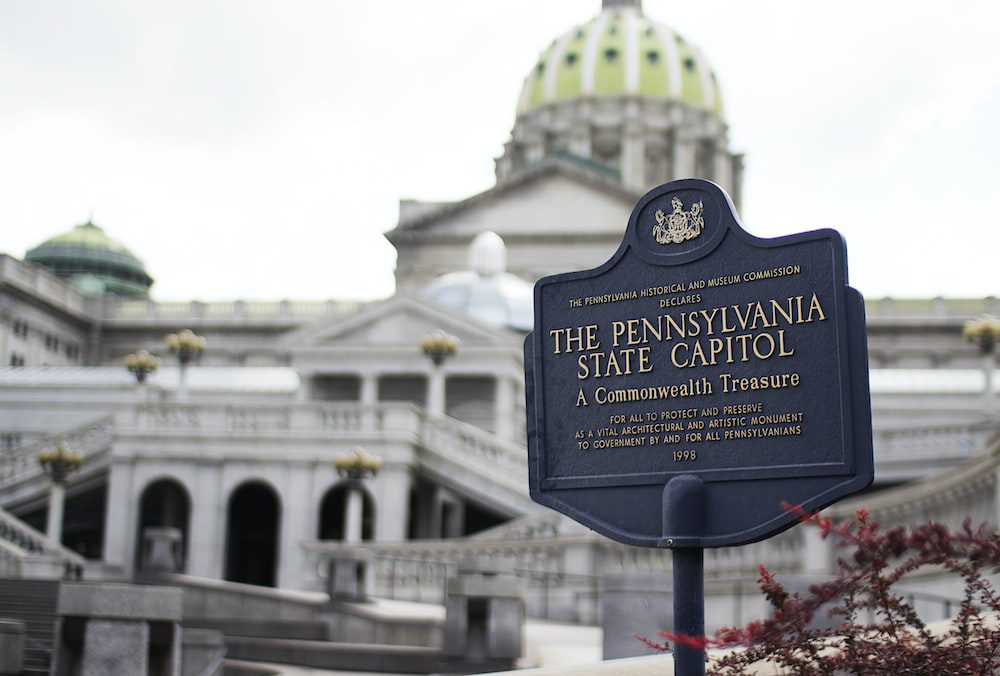The Economic Impact Of Pennsylvania’s Online Sports Betting Industry
Author: Shaun Stack
Pennsylvania is one of dozens of states that have started to reap the benefits of regulated online sports betting. The Keystone State passed new sports betting laws in 2018 after the Professional and Amateur Sports Protection Act was overturned by the US Supreme Court.
Since then, the economic impact of sports betting has been felt all over the state. Online sports gambling expanded during the COVID-19 Pandemic while many other industries struggled. PA was able to use the growing industry to mediate the economic pressures of the pandemic.
The benefits of online sports betting have continued to affect PA even now that the days of COVID-19 are largely behind us. Below, I’ll detail how online betting has benefited the Keystone State and what could be in store in the near future.
When Did Pennsylvania Legalize Sports Betting?
The aforementioned SCOTUS decision opened the doors for states to create their own sports betting laws. Lawmakers in PA were quick to act on this new opportunity. The Keystone State passed new sports betting laws that allowed for both in-person and online sportsbooks.
First Land-Based Sportsbooks Open
PA legislators worked quickly to regulate sports betting in 2018. PASPA was overturned in May 2018. By November, just six months later, the first land-based sportsbook was opened in the Keystone State.
In those short six months, state legislators passed a new sports betting law, created regulations, and approved licenses for operators. The new regulations allowed for in-person betting at more than a dozen brick-and-mortar casinos, racinos, and off-track betting locations.
Part of the reason PA sports betting was able to move so quickly was that lawmakers got an early jump on the issue. State legislators began passing sports betting legislation in 2017 before PASPA was overturned.
How Does Sports Betting Benefit Pennsylvania?
In addition to being a fun way to pass the time, sports fans enjoy gambling because of the potential financial gains. States that offer regulated betting have a similar incentive.
Pennsylvania lawmakers created multiple revenue streams when they passed sports betting legislation. Prospective sportsbook owners would have to pay fees to obtain and maintain their licenses. Also, revenue from sports betting, including online wagers, would be heavily taxed.
- Initial licensing fee = $10 million
- Renewal fee = $250,000 every five years
- Tax rate on sports betting revenue = 36%
Sportsbooks are not the only ones that have to worry about paying taxes. You have to pay a 3.07% state tax on any gambling winnings you earn in the Keystone State.
Online and Mobile Sports Betting
Many states jumped at the opportunity to pass new sports betting laws. But PA was one of the few states that were also quick to adopt mobile and online sports betting legislation.
Pennsylvania was just the fourth state to allow regulated electronic sports betting. Online betting is more convenient than in-person wagering and offers the option of in-play betting. The ease of online sports betting has been beneficial for bettors and sportsbooks alike.
According to the AGA, commercial casinos employed more than 33,000 people in PA at the end of last year. This includes all casino workers, including those that operate the site’s sportsbook. Adding sportsbooks allowed casinos to attract more bettors and created new job opportunities in the Keystone State.
PA Sports Betting Revenue By Year
The first regulated sportsbook in PA launched in late 2018 at the Hollywood Casino at Penn National Race Corse in Grantville, PA. More sportsbooks opened in 2019, and the economic impact of regulated sports gambling was quickly apparent.
Online betting was not available in 2018, and there were only three land-based operators. Despite these disadvantages, regulated sports betting still generated nearly $1 million in tax revenue in the Keystone State.
As you can see in the table below, PA sports betting took off in 2019 and never looked back.
Year Total Handle Revenue Tax Revenue
2018 $17.59 million $2.52 million $905,972
2019 $1.49 billion $84.11 million $30.28 million
2020 $3.58 billion $189.7 million $81.37 million
2021 $6.55 billion $434.04 million $119.8 million
2022 $7.25 billion $509.29 million $134.4 million
2023 $3.16 billion $211.27 million $71.8 million
Total sports betting handle, revenue, and tax revenue have all steadily increased each year. We are just starting the second half of 2023, and so far, PA bettors are on track to set new records again this year.
The current totals for these metrics are slightly below half of the totals from 2022, but sportsbooks should not be worried. Football is the most popular sport to watch and wager on in the US. When the NFL and college football kick off this fall, sports gambling is bound to take off once again.
PA Sports Betting Revenue During the Pandemic
There COVID-19 pandemic hit industries all over the world extremely hard. Gambling was no exception, and revenues dipped across the US. For states like Pennsylvania, though, online wagering allowed sportsbooks and bettors to maintain some normalcy.
Brick-and-Mortar Sportsbooks Close
COVID restrictions caused many businesses to temporarily close their doors in Spring 2019. Sportsbooks in PA closed in mid-March and did not reopen until late June. The loss in revenue for both bookmakers and the State was clear.
According to the PA Gaming Control Board (PGCB), retail sportsbooks generated a total betting handle of $35.6 million in February 2020. In March, that number fell below $13 million. Retail sportsbooks were not allowed to be open and therefore did not generate a betting handle in April or May.
Brick-and-mortar sportsbooks were allowed to reopen in late June but raked in less than $690,000 in betting handle. It would take until August for the betting handle of in-person sportsbooks to surpass the February total.
Online Betting Remains Steady
Online sports betting sites did not have to worry about pandemic restrictions the same way as in-person sportsbooks. This meant that, despite the lack of sports to bet on, online sites were able to maintain healthy betting handles.
The betting handle for PA’s online sportsbooks in February 2019 was $118.33 million. This was less than half of the handle from January, which benefited from the NFL regular season and playoffs. In March, the handle dropped to just $46 million.
There is no denying that this was a significant drop-off, but it was not all caused by the pandemic. In July 2018, the last month without football prior to March 2019, the online handle was less than $39 million. The online handle quickly rebounded, too, reaching over $88 million in June 2019.
Online sports betting’s quick turnaround was good news for the coffers in the Keystone State. Bookmakers had to pay nearly $5 million in taxes between April and June of 2019. This revenue was crucial during a time when many other industries were shut down.
How Has Sports Betting in PA Changed Post-Pandemic?
Many industries continued to struggle even when pandemic restrictions began to be lifted. Sports betting was one of the few exceptions in the Keystone State. Bettors who were forced to wager online quickly grew to love internet gambling and continue to use it today.
Return of In-Person Betting
Retail sportsbooks were allowed to reopen in June 2020, but it took time for in-person betting to rebound. The summer months have fewer sports to bet on anyway, which certainly did not help.
The PGCB’s revenue reports show that in-person betting handles peaked at $49 million in November 2019. It would not surpass that height until October of the following year.
Retail sportsbooks have since recovered from the pandemic. However, they have continued to fall further and further behind online sports betting sites. The situation was already trending in this direction, but the pandemic helped to accelerate the process.
Online Betting Remains Popular and Profitable
There are many reasons people prefer online betting, such as it convinced and increased betting options. During the pandemic, bettors had no choice but to use online sportsbooks to place their wagers.
This helped build the popularity of PA’s online sportsbooks. But even since retail betting options reopened, online betting sites remain the most popular option. From July 2022 to May 2023, online sportsbooks raked in more than $6.35 billion in total betting handle.
Retail sportsbooks, on the other hand, earned less than $500 million in total handle during that time period. The difference is similar in gross revenue and tax revenue, as well.
Online sportsbooks generated more than $142 million in revenue for the Keystone State during that 11-month period. In-person sportsbooks paid just over $17 million in taxes during that timeframe.
How Has Pennsylvania’s Online Sports Betting Industry Impacted You?
Pennsylvania was one of the first states to allow regulated online sports betting. This decision has proved to be the right one, as online sports betting generated tons of tax revenue during the pandemic. The economic impact of sports betting has continued to grow in recent years, and more than 33,000 people are employed by PA casinos and sportsbooks.



